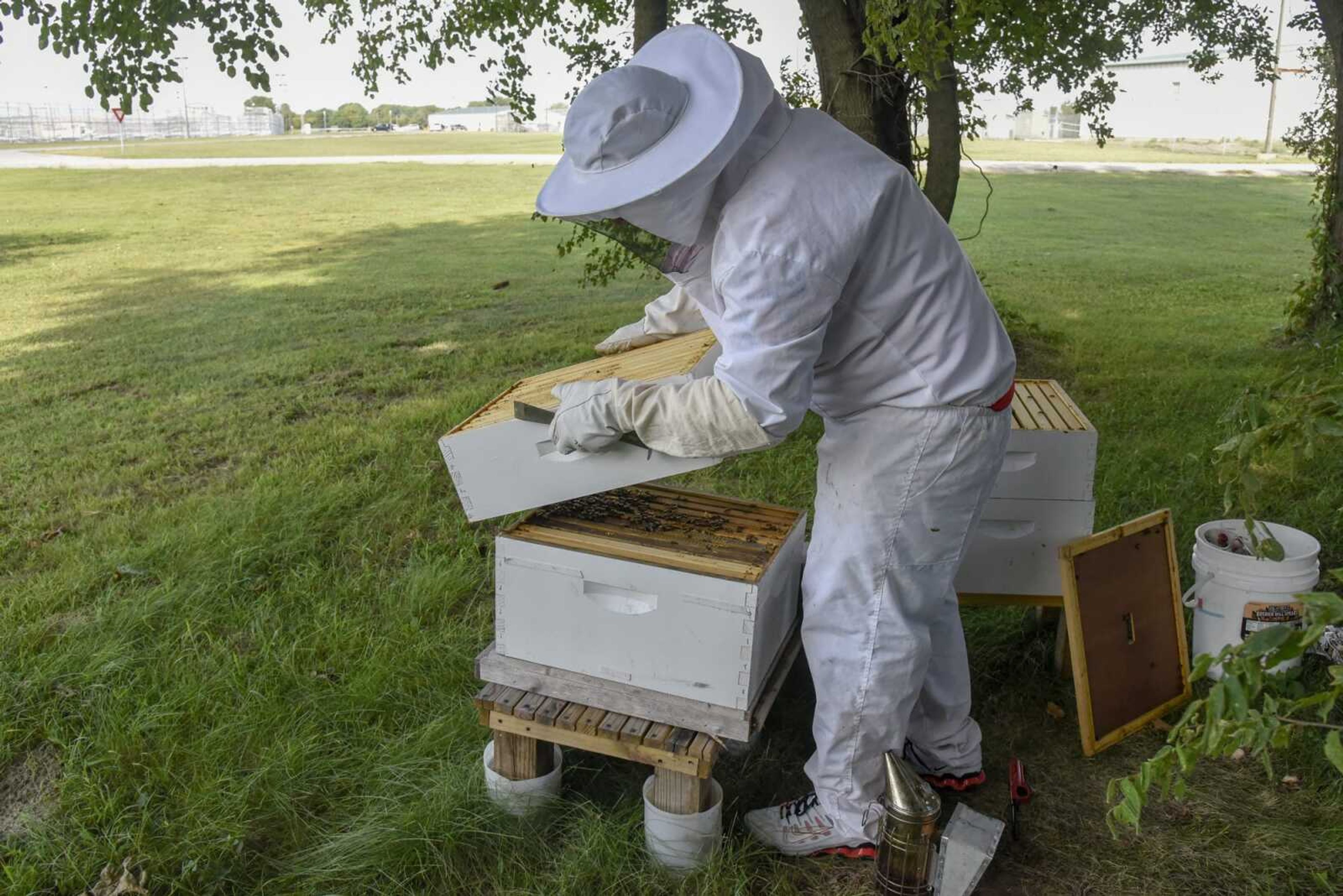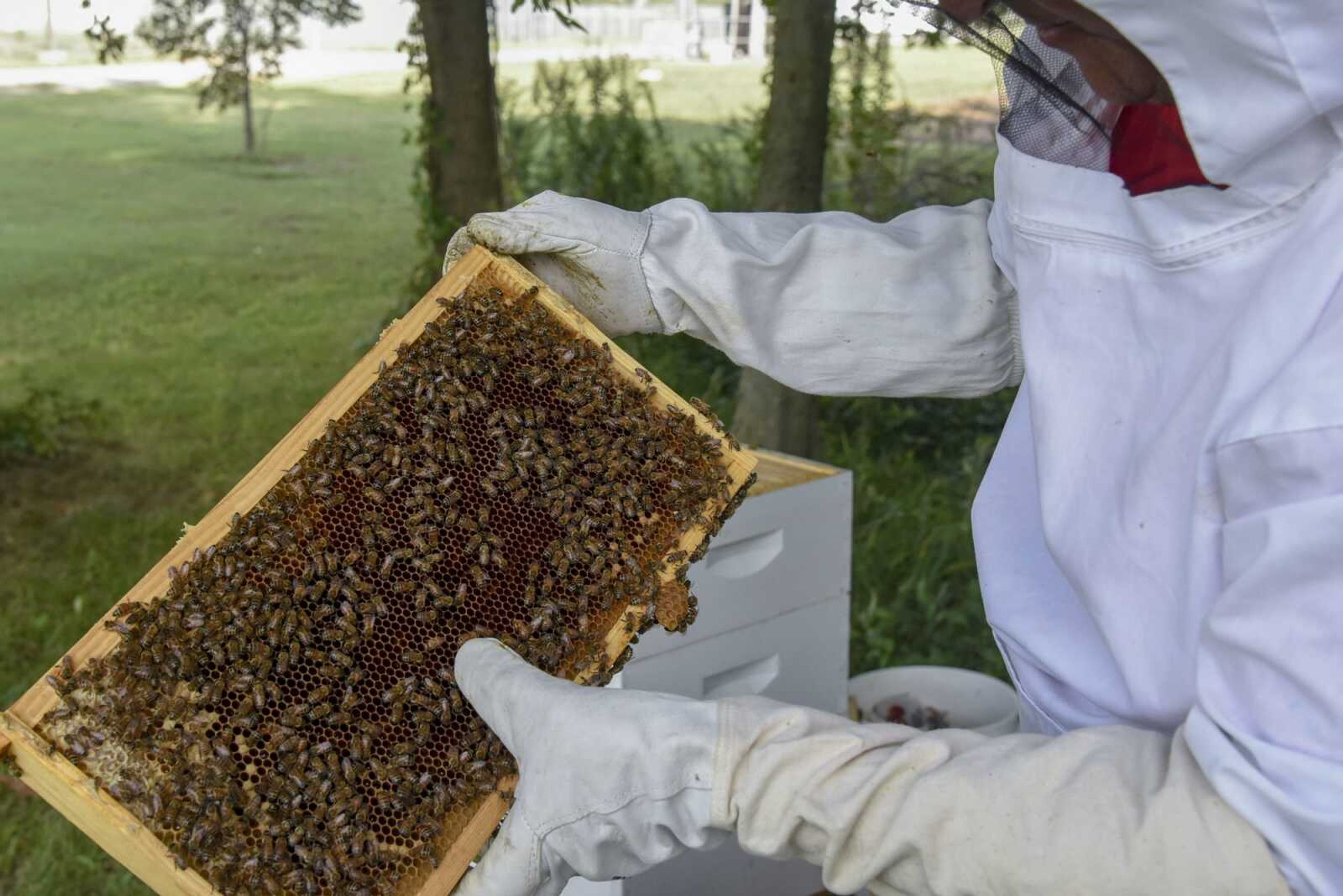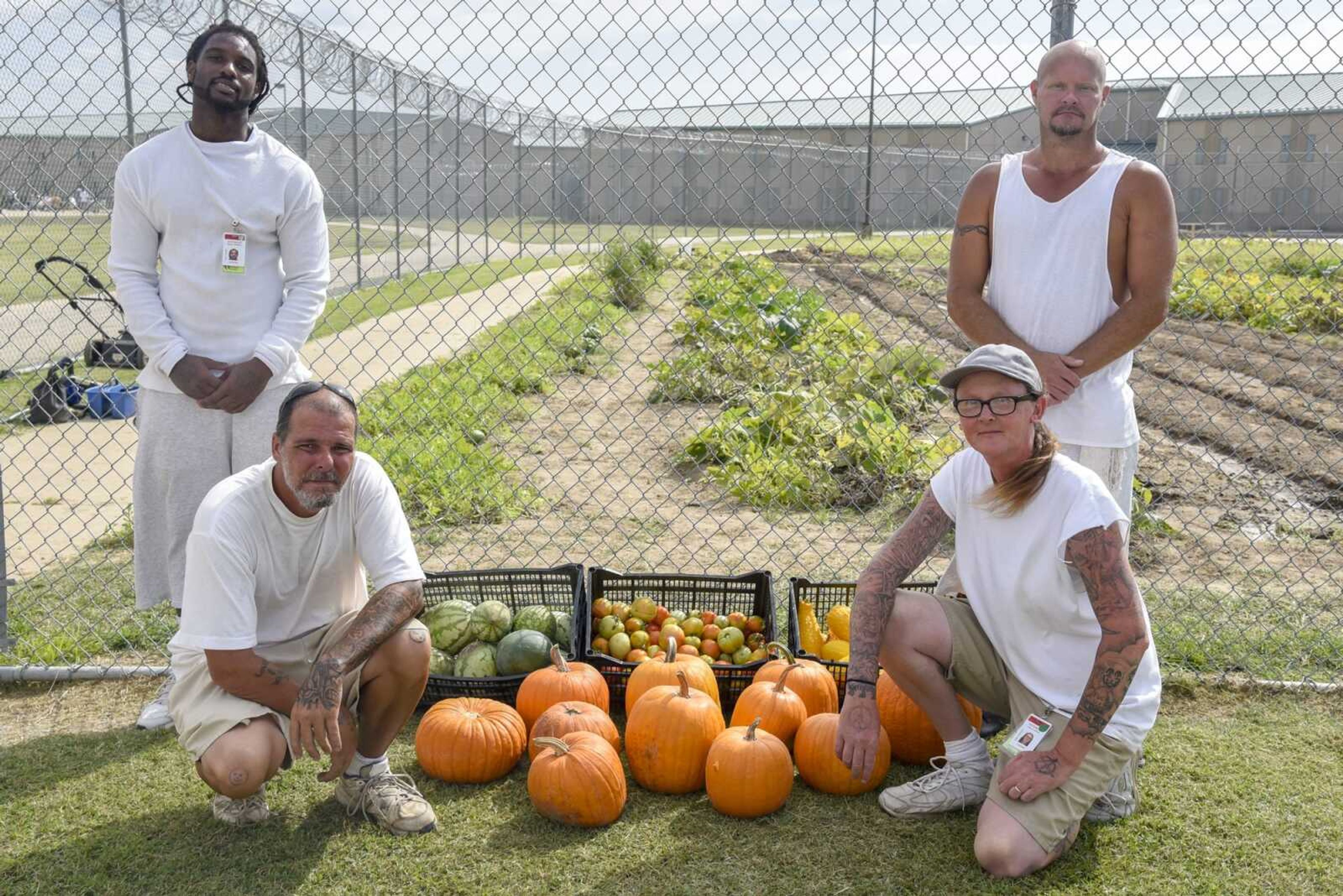Bee hive project at Charleston prison helps inmates, local food supply
Not too far from the barbed wire fences, under some trees near the outskirts of the Southeast Correctional Center property, there is a buzzing beehive. Recreational officer RO1 at the center, Jody Enderle, currently takes care of the few thousand bees in the hive by checking on their progress and providing sugar water...
Not too far from the barbed wire fences, under some trees near the outskirts of the Southeast Correctional Center property, there is a buzzing beehive.
Recreational officer RO1 at the center, Jody Enderle, currently takes care of the few thousand bees in the hive by checking on their progress and providing sugar water.
"You don't have to do too much. They do everything," he said about the bees.
When the program first began, low-level offenders were helping him look after the bees, but now the hive is projected to move inside the high security gates of the prison this fall.
The hive is in a structure of four wooden boxes stacked on top of each other. The top box has jars of sugar water and the remaining three are filled with frames, about 10 in each box. The frames are where the honey collects and eggs are laid.

Enderle said it's a fairly new project that began in 2019 to provide inmates with an educational, hands-on activity. The first swarm Enderle captured did not survive the winter. It wasn't until May this year that he captured a new swarm, which has been growing ever since. He has high hopes it will survive this winter since he is refraining from collecting the honey until after the winter season passes.
Enderle said it's been interesting to see the swarm grow into a hive from each stage. "It's really neat to just see the whole thing in action. And then, again, it's a good learning experience for the offenders, teaching them, and having them actually learn about and actually do it. Like, it's a good feeling," Enderle said.
Beyond being an educational activity, the bees help pollinate an 11 acre field of wildflowers and milkweed on the center's campus and the gardens within the gates. Inmates work a produce garden as an activity, every day they can.
According to Michael Kreps, the lead inmate of the garden, the bees have improved their garden because of the bees' pollination abilities. He said he wants to put in more flowers to attract more bees and other pollinators, and to keep birds out.
The inmates grow watermelons, yellow squash, zucchini, tomatoes, pumpkins and more. The produce they grow goes to the Southeast Missouri Food Bank, which feeds thousands in the southeast region. The inmates have donated more than 5,000 pounds of produce to the food bank so far this year. Enderle said if the bees produce enough honey after this winter, they will donate honey from the hives to the food bank as well.

Enderle said he looks forward to bringing the hive inside the gates to teach other inmates how to take care of it.
Connect with the Southeast Missourian Newsroom:
For corrections to this story or other insights for the editor, click here. To submit a letter to the editor, click here. To learn about the Southeast Missourian’s AI Policy, click here.









